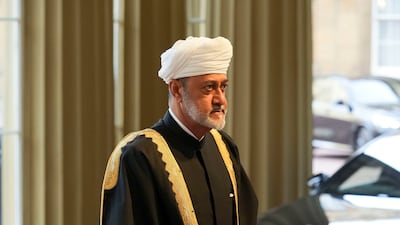As the nation recovers from 10 days of official mourning following the death of Queen Elizabeth II, you wonder if some people might wish it would continue a while longer.
Royal fans, and there are plenty of those, haven’t been able to get enough of the pageantry and spectacle. Others, however, could have a more pragmatic reason for wanting the pause to be prolonged. I refer to Liz Truss, the new prime minister and Kwasi Kwarteng, her chancellor.
No sooner has the funereal black been put away, than the Government is required to get down to urgent business. This week will see a flurry of announcements, on proposals to tackle the growing crisis in the NHS, meet rising energy costs, slash red tape and make tax cuts.
In a matter of days, we will have a good idea as to the direction of the Truss administration. Judging by the leaks, we’ve got one already. Having told the Conservative Party members who elected her that Ms Truss was going to reduce taxes, that is what she is going to do.
Her boast created clear blue water between Ms Truss and Rishi Sunak, her challenger, and conscious of sticking to a promise and the need to stamp her identity early on, especially with a party conference looming, we’re told that Friday will see Mr Kwarteng hold the much trailed “fiscal event”.
In what is effectively a mini-Budget, Mr Kwarteng will scrap the rise in National Insurance brought in by his predecessor, Mr Sunak, under the previous prime minister, Boris Johnson. Out too, will go green levies on energy bills, another staple of the eco-friendly Johnson. Corporation tax is set to be frozen. In all, Mr Kwarteng will announce a £30bn package of tax reductions.
Much will be made among their supporters in the media and politically of what he and his boss, Ms Truss, are aiming to achieve, which is to alleviate the pressure on consumers and drive growth. They will accompany these measures with another, controversially included in Mr Kwarteng's deregulation bundle, of removing the cap on bankers’ bonuses. It’s all part of what we will be told by their promoters is an attempt to “turbocharge” and “boost” the economy.
Queen Elizabeth's funeral - in pictures
That would be fine if they were funded, if Mr Kwarteng can say how they’re going to be paid for. But he can’t. This is the direct opposite of the caution espoused by Mr Sunak. This is a colossal gamble.
It comes on the back of freezing household and small business energy bills, a state intervention that is reckoned will cost £150bn, the biggest since the Second World War and dwarfing Mr Sunak’s initiatives to combat Covid. This, as well, the day after the Bank of England’s Monetary Policy Committee is due to hold its meeting postponed by the queen’s passing, when it is expected to again raise interest rates in an effort to curb inflation, currently 9.9 per cent and expected to go higher. Britain has not yet matched the formal criteria for being in recession, although many economists believe it is there and if it is not, it is only a question of when, not if.
No wonder the markets are jittery. The pound is at a 37-year low against the dollar and 17-month low to the euro.
Stand by for a jittery period for sterling and for Britain’s global financial standing. Ms Truss has admitted as much, saying she is prepared to “ride out the storm”.
Investors may not be impressed by what she terms her “bold plan” for the economy. The problem is that there is a fine line between “bold” and “reckless”. When she was on the hustings, making her sweeping statements, Ms Truss was aided by the finding from the Office for Budget Responsibility of £30bn of “headroom”, enabling her to make cuts and stay within the fiscal rule that says government debt must fall as a proportion of national income in 2024-25, the final year of this current Parliament.
It's likely that the energy crisis and a slowdown in the economy have eroded that vital leeway, meaning that by not diverting from their path, Ms Truss and Mr Kwarteng are in danger of breaching the fiscal rules, designed to ensure a government balances the books.
Confirmation the rules have been broken will not come until the full Budget in November. But Mr Kwarteng may seek to extend the deadline until into the next Parliament. Any suggestion they’re being brushed aside could cause the pound to go into a tailspin. That won’t happen if the markets are persuaded by what is probably going to be Mr Kwarteng’s reasoning, that conditions are so unprecedented as to justify the red line being crossed and that long term, he is fully committed to bringing down debt.
Cutting taxes while the economy is slowing, however, does not look like a sensible ploy. Ms Truss and Mr Kwarteng are going to have to do a lot of convincing. The tax cuts must be funded and that may come from increased borrowing, rather than from higher revenue due to the growth that they are seeking.
Much depends on how the backdrop for Britain is viewed. Ukraine’s fightback has sparked hopes that fuel prices will fall and that the conflict is nearer resolution. Despite the likelihood the UK is in recession, employment is holding up well. Unemployment is the lowest it has been since 1974.
Capping energy bills, while expensive, may prove to be a smart ploy, preventing consumer spending from dropping and causing a flatter, shorter recession. If investors can see the logic in the strategy the response may not be so negative. If, on the other hand, they see only madness and weakness, then a torrid time awaits.
Certainly, the 10-day breather and any generosity of international spirit towards Britain afforded by the monarch’s dying is well and truly over.

























































































